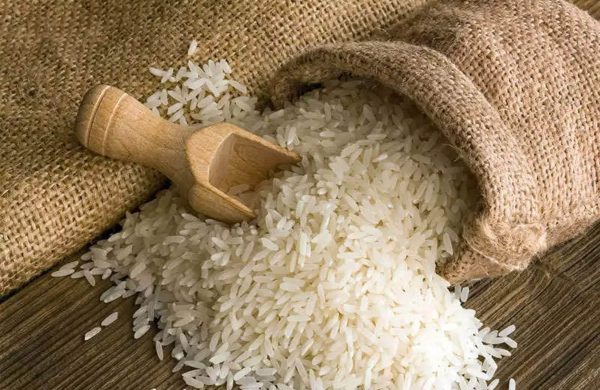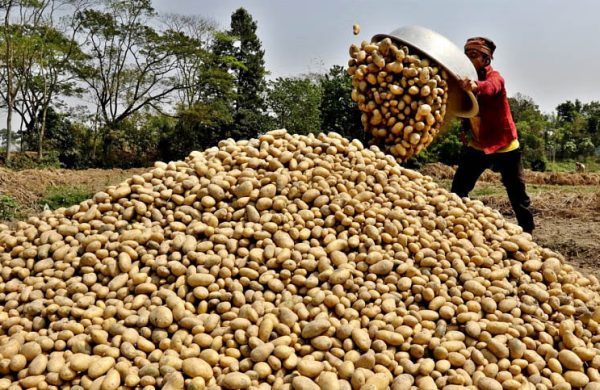Rice prices on the rise, low income people under pressure
- Update Time : Tuesday, July 8, 2025

Staff Correspondent:
Nearly 1.3 million (13 lakhs) tonnes of rice have been imported in the country. At the same time, the last boro season yielded better production. Despite this, the rice price has not come down, rather it has been increasing.
According to the Trading Corporation of Bangladesh (TCB), the lowest retail price for coarse rice in local markets has now reached Tk 55 per kilogramme, up from Tk 50 just a month ago. Medium-grade rice is selling at Tk 60–65 per kg, while fine rice costs Tk 75–85 per kg.
The upward trend in rice prices began in early 2020, when coarse rice was priced at just Tk 30–35 per kg. The now-ousted Awami League government, despite multiple measures, failed to bring prices down before being removed through the July mass uprising. Prices have continued to climb even under the new administration.
Rice is the staple food for Bangladeshis and its price has a direct impact on overall inflation. For low-income households, rice constitutes a major part of monthly expenses.
MONTHLY COSTS KEEP RISING
At a grocery store in Kazipara, Dhaka, local resident Tania Begum was shopping for daily necessities on Sunday.
She told journalist that her family typically buys a 25-kg sack of Miniket rice each month. Before Eid-ul-Azha, she purchased a sack for Tk 2,150; just days later, the same sack cost Tk 2,300—an increase of Tk 6 per kg.
“Living costs keep rising, but salaries don’t. How are we supposed to run a household like this?” she asked.
SEASONAL PRODUCTION DOESN’T LOWER PRICES
More than 20 million tonnes of rice are produced in the country during the Boro season alone, which accounts for over half of annual rice output. Prices usually drop during peak Boro harvest. This year, prices dipped slightly, but not significantly. Even at the height of the season, coarse rice was selling at Tk 50 per kg or higher.
Though the Boro season typically lasts through May, prices started rising again in June. TCB data shows that coarse rice rose by Tk 5 per kg last month, medium-grade rice by Tk 3–7, and fine rice by Tk 3–5 per kg.
Despite reports of Tk 55 per kg rice, such prices are rarely found in most retail markets. Low-income buyers often have to pay Tk 60–65 per kg. While visiting Baishbari in Kazipara, West Tejturi Bazar, and the wholesale market in Karwan Bazar, this correspondent found out that Paijam rice sells at Tk 60–62, while BR-28 variety costs Tk 60–65, these are the common varieties consumed by working-class families.
Moslem Uddin, owner of Baishbari General Store, said he sells the Mozammel brand of Miniket rice. He bought a 50-kg sack for Tk 3,800 two weeks ago, and paid Tk 4,100 for the same sack last Friday. “I’m forced to sell at higher prices now,” he said.
1.3 Million Tonnes Of Rice Imported
Last August, floods damaged Aman rice production. In response, the government reduced import duties and approved the import of 1 million tonnes of rice.
According to the food ministry, 1.3 million tonnes were imported in the 2024–25 fiscal year, which ended on 30 June. Of this, 835,000 tonnes were government imports, while private importers brought in around 470,000 tonnes. In the same period, 6.2 million tonnes of wheat were also imported.
Current public food grain stocks stand at approximately 1.8 million tonnes, which is considered satisfactory, including over 1.5 million tonnes of rice.
GLOBAL PRICES DECLINE, BUT NOT REFLECTED LOCALLY
Global rice prices have fallen. According to the World Bank, the average global price for Thailand’s 5 per cent broken rice dropped from US $586 per tonne in July–September 2023 to $419 in June 2025. Vietnam’s rice declined from $543 to $377 over the same period. Despite this, prices remain high in Bangladesh.
Insiders note that rice imports are typically restricted in Bangladesh and only allowed under special government permits. Those permits have expired, as have duty exemptions, effectively halting imports. This has allowed traders to hike prices without facing competition from foreign markets.
According to the National Board of Revenue (NBR), the total tax and duty on rice imports now stands at 67.5 per cent.
Md. Ziaur Rahman, general secretary of the Benapole Import-Export Association, told journalist that rice imports stopped after 15 April. Those who received import permits were asked to complete imports by that date, and the duty exemption was also lifted.
He explained that Bangladeshi rice imports usually come from Burdwan, India, where the per-kg price is around Rs 34, equivalent to Tk 53–54 after taxes and transport.
WHAT NEEDS TO BE DONE
Experts argue that domestic traders enjoy strong protection in the market because of the inflated dollar price, which has spiked over 40 per cent since 2022. This has raised the cost of importing rice and left local producers with little competition. Large traders are stockpiling paddy and rice in bulk. To break this market control, competition needs to be restored.
A senior official from a relevant government agency, speaking on condition of anonymity, said, “If traders see a profit opportunity, they will invest and stockpile. You can’t stop that. To curb their influence, tariffs should be removed and rice imports liberalised.”
He suggested that the government could remove duties and open up imports for three months to see how the market reacts.
Economists warn that without controlling rice prices, inflation will remain high. The Bangladesh Bank has been trying to curb inflation by raising interest rates and restricting loan flows.
Although inflation has declined slightly, it remains high, over 9 per cent as of May 2025. Meanwhile, economic activity remains sluggish, affecting job creation and income growth.
Professor Selim Raihan of Dhaka University’s economics department told journalist “The government has focused too heavily on monetary policy to control inflation. That alone won’t work. Market management, especially ensuring a steady supply of essential goods, is crucial. If domestic production is insufficient, timely imports must be guaranteed.”
Highlighting that inflation in Bangladesh is largely supply-driven, professor Raihan said the country is not self-sufficient in rice production.
“Imports must be made at the right time to prevent demand pressure from creating further market instability. During Ramadan, many goods remained affordable due to steady supply, but that effort has not been sustained year-round,” he added.
















